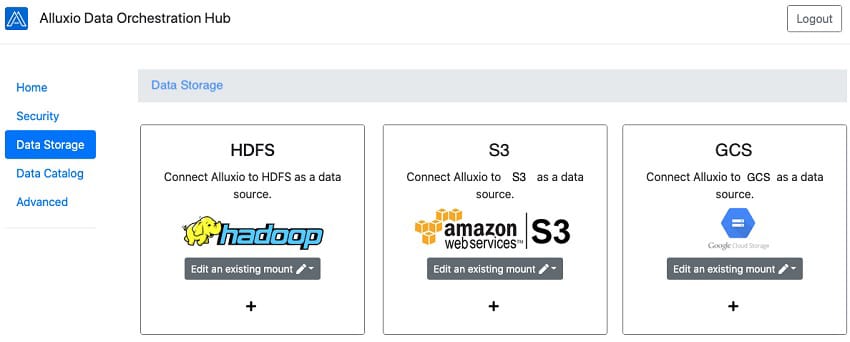Today, Alluxio released a new update to their Data Orchestration Software, Alluxio 2.4, the company develops open-source data orchestration software for the cloud and has done so since 2014. Version 2.3 of their eponymous Alluxio software was released just three months ago, in July. Before that, we covered the addition of a structured data service that coincided with the 2.2 release in March. That puts them more-or-less on track for quarterly releases despite the still ongoing troubles.

Version 2.4 of Alluxio’s eponymous data orchestration platform comes with a long list of new features and enhancements. One of the longer lists I’ve seen this year. One of the nicest enhancements is how easy they’ve made it to use public clouds, as shown in the screenshot above. Based on Terraform, Alluxio now makes it easy to launch pre-configured clusters programmatically using a single command. Alluxio has been featured as a recommended data lake partner for data lake modernization solution with Google Cloud, including the ability to launch an Alluxio-enabled cluster using the Dataproc component exchange console. Improving the UI and user experience was clearly a major focus of this update. The platform also has a new web-based management console called Alluxio Data Orchestration Hub. The Hub makes it easy to connect an analytics or machine learning clusters with multiple data sources to unify data lakes by providing a unified management view for configuration and monitoring. Alluxio 2.4 also has several other enhancements to simplify and improve cluster management and maintenance. The system now provides an aggregated cluster view of key performance metrics like I/O throughput and metadata request rates through the UI and programmatic monitoring endpoints. Internal monitoring for failures and system slowdowns has been added, further improving the operator view of the health and performance of the system.
At the core of the Alluxio Data Orchestration Platform is a metadata service, a scalable, distributed data service for management across multiple sources like traditional Hadoop-based data lakes on-premises or modern cloud-based data lakes. Alluxio has expanded this service to provide support for billions of files while removing third-party system dependencies. Breaking away from dependencies on traditional Hadoop components, Alluxio has bolstered support for cloud-native and container-based deployments. Alluxio’s lifecycle management metadata service now also supports automatic backups without impacting the live system. A nice little feature to help reduce management overhead. Despite reducing the external dependencies, the development team still took the time to add support for Java 11 while maintaining support for Java 8. Users looking to move their compute engines or Alluxio systems to Java 11 should now be able to do so.
Customers concerned with security will be happy to know that Alluxio 2.4 now integrates with Vault for secure management of sensitive information for data access with dynamic infrastructure across multiple clouds and on-premises environments. With the shift from on-premise infrastructure to multiple cloud-providers, protection of data access tokens and credentials is more important than ever.
That’s a really impressive number of updates to make in just the three months since the previous release. It’s even more impressive when you consider the company’s revenue model. As an open-source software developer, Alluxio makes its software not just freely available but freely modifiable. Because their software is free, their main source of revenue comes from support contracts. Every support call very directly cuts into the company’s profit margin, which means they are strongly motivated to keep their software stable to minimize the number of support calls. Despite that, they’ve still made significant improvements in multiple areas. It’s really incredible.
Availability
Immediately




 Amazon
Amazon